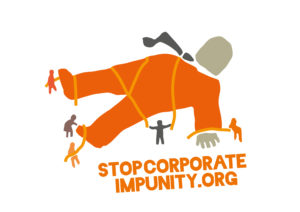
Global Campaign
Final statement
6th session of the OEIGWG
30 October 2020
The Global Campaign – a global network representing social movements and organizations of affected communities, workers, peasants, women, and indigenous groups, as well as non-government organizations and campaign groups – indicated in a statement in early September, that given the global COVID-19 pandemic, there aren’t suitable conditions for a negotiation Session. For that reason, our proposal was to transform the Session into a shorter consultation, but that suggestion was not heeded.
Unfortunately, the various challenges that we experienced and witnessed these past days proved that our original assessment was correct. The unprecedented conditions demanded innovative and new methodologies to achieve an efficient, representative and participatory process. The difficulties that everyone encountered in this 6th Session resulted in a less than ideal process. By comparison with 2019, when more than 90 State delegations participated, this year there was an abundance of statements but no possibility for dialogue or negotiation.
In line with civil society’s call for this process to be an inter-governmental negotiation, we underscore that it is time to ensure this negotiation become a States-driven process, with ample space for civil society participation according to ECOSOC rules. This is the only way to safeguard its democratic character. The current process leaves both civil society and States in the dark regarding how inputs to the negotiation text have been included or excluded. We believe that this is not the way to move towards a substantive 3rd draft.
In that light, we commend the decision to have a compiled text and matrices comparing the original 2nd revised draft text with all of the comments and proposals from States and civil society. We would urge States to contribute to these matrices in a timely manner to ensure we have a strong basis for informing the third draft. Furthermore, we would request that the Secretariat communicate and make this opportunity broadly available to civil society so as to provide States with a full record of the inputs. This base document will be essential to clarify the degree of agreement and disagreement around each article. In addition, we ask the Chair to release the new draft in a timely manner, at least 4 months before the start of the next session, in order to give States and civil society organizations the time to analyze it and undertake the necessary consultations.
The Covid-19 pandemic has impacted all aspects of these negotiations and IGWG procedures. Therefore, the IGWG methodology for the annual face-to-face session should also be adapted to the new conditions. Given these changed conditions, we believe that it is essential to implement an inter-sessional process to advance agreements and textual revisions.
Last but not least, in terms of the content of the future treaty, we would like to again emphasize – as the majority of States have – the urgent need to respect the mandate of the OEIGWG established by Resolution 26/9. The purpose of the mandate is to regulate the activities of TNCs with regards international human rights law. That is very clear and all parties must bear that in mind.
In the context of major difficulties and challenges, the Global Campaign reaffirms its faith in the process. Despite all the challenges we face, we have shown – through our commitment and numerous participation – that we remain fully convinced that this LBI is needed to bring justice to affected people and to put an end to the impunity of TNCs. The process is at a critical stage and with many threats looming on the horizon. Therefore, we provide our proposals and opinions to restore the vitality of this historic process and renew the commitment of delegations and civil society alike to achieving a successful, long-lasting treaty.
